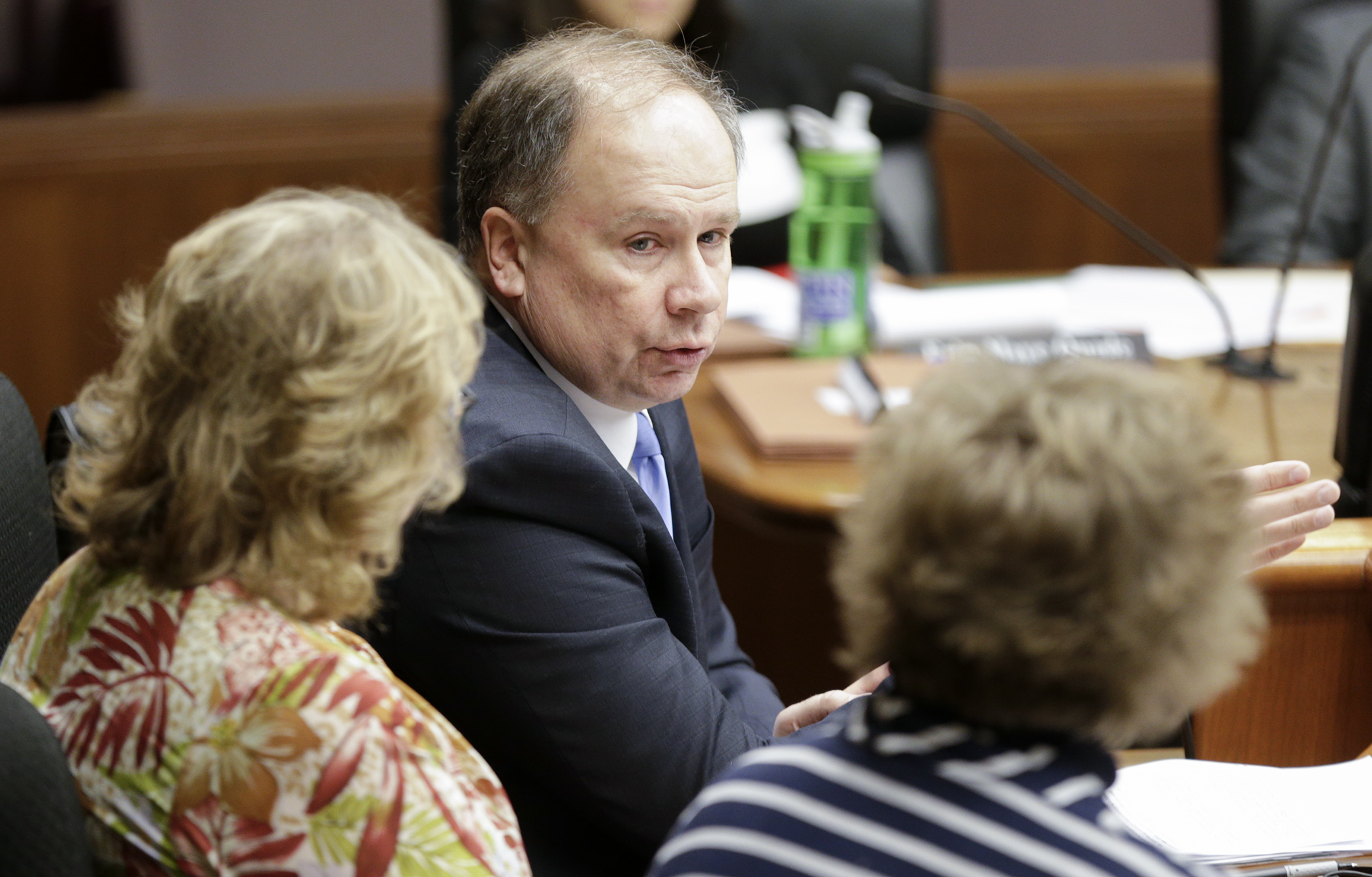Proposed education tax adjustments create concerns

Two bills that would adjust education-related tax credits and deductions are creating concern from those who fear they could pull resources away from public schools under the guise of increased opportunity.
Both were approved Thursday by the House Education Innovation Policy Committee and sent to the House Taxes Committee.
It was HF387, sponsored by Rep. Jim Knoblach (R-St. Cloud), which created a clash of principles over whether public tax funds should be used to support non-public institutions.
The bill, which has no Senate companion, would increase the maximum E-12 education tax deduction from $1,625 to $2,600 for each child in grades K-6, and from $2,500 to $3,000 for each in grades 7-12. It would also extend the E-12 education tax credit from $1,000 to $1,500 per child and increase the family income level at which the credit will phase out from $33,500 to $47,500. All thresholds would be annually adjusted for inflation.
The credits are currently not available for use toward non-public education tuition; that would change under the proposal effective in tax year 2017.
The pro and con
Supporters say the bill would present new opportunities for some families.
“The updates are appropriate. It’s been nearly 20 years since these amounts were last set,” said Jim Bartholomew, Minnesota Business Partnership’s education policy director. “They will help low-income families support their education.”
“We need to support parents and kids, and that has many different forms,” Rep. Barb Haley (R-Red Wing) said. “I don’t see it as any way denigrating our public school systems.”
But before a contentious, 9-6 roll-call vote, several concerns were voiced over whether the updates were appropriate, and how they might affect public schools.
“The underlining bias is that students do not receive a quality education in public schools,” said Tiffany Dittrich, language arts director at White Bear Lake High School.
“[The bill] would pull much needed resources away from public schools for the benefit of private schools,” said Jane Hennen, a speech-language pathologist for the St. Cloud Area School District. “It will negatively impact public schools’ ability to meet students’ needs.”
Issues regarding admittance policies and accountability are also concerns.
“People pay taxes, but they want to make sure the results are targeted,” Rep. Laurie Pryor (DFL-Minnetonka) said. “We’re in this wild, Wild West where people are going to get money from the government, and we will not see accountability for that money because we don’t keep track of private schools the way we do public.”
Knoblauch conceded that some non-public schools have admission requirements based on religious beliefs.
“Different private schools try to carve out their own niche to who they want to help depending on their mission,” Knoblach said. “I don’t see a problem with that.”
“I would say they discriminate,” responded Rep. Carlos Mariani (DFL-St. Paul).
More updates, fewer arguments
Sponsored by Rep. Sarah Anderson (R-Plymouth), HF255 would change the threshold of tax credits for education-expenses for grades E-12 from $1,000 per child with a family income greater than $35,000, to $1,500 per child with a family income greater than $50,000. It would also make the income threshold for the credits adjusted for inflation beginning in tax year 2018. The maximum possible credit would be reduced to $1 for each $4 over the income threshold. It was approved on a 16-0 roll-call vote.
A companion, SF416, sponsored by Sen. Carla Nelson (R-Rochester), awaits action by the Senate Taxes Committee.
Any individual can now file a credit against any imposed taxes equal to 75 percent of the amount paid for education-related expenses for a qualifying child in grades E-12. Expenses can include tuition, textbooks and other software.
Related Articles
Search Session Daily
Advanced Search OptionsPriority Dailies
Ways and Means Committee OKs proposed $512 million supplemental budget on party-line vote
By Mike Cook Meeting more needs or fiscal irresponsibility is one way to sum up the differences among the two parties on a supplemental spending package a year after a $72 billion state budg...
Meeting more needs or fiscal irresponsibility is one way to sum up the differences among the two parties on a supplemental spending package a year after a $72 billion state budg...
Minnesota’s projected budget surplus balloons to $3.7 billion, but fiscal pressure still looms
By Rob Hubbard Just as Minnesota has experienced a warmer winter than usual, so has the state’s budget outlook warmed over the past few months.
On Thursday, Minnesota Management and Budget...
Just as Minnesota has experienced a warmer winter than usual, so has the state’s budget outlook warmed over the past few months.
On Thursday, Minnesota Management and Budget...